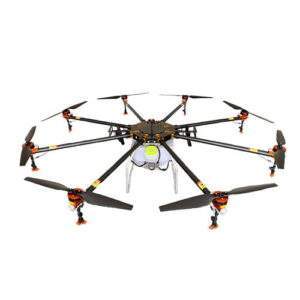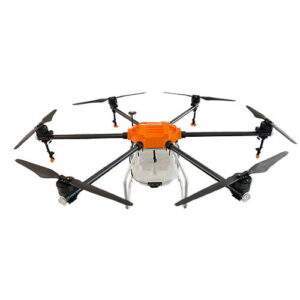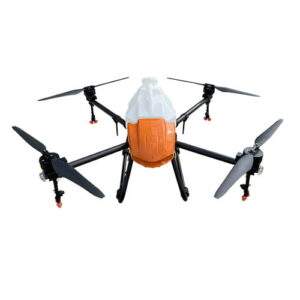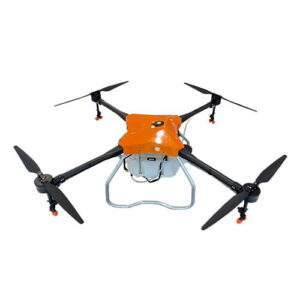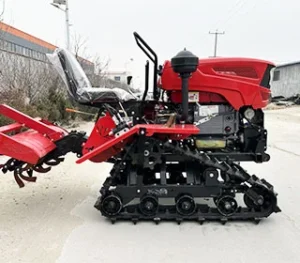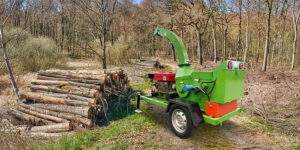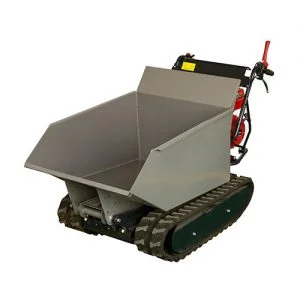Agricultural Spray Drones: Innovations in Precision Farming
Introduction
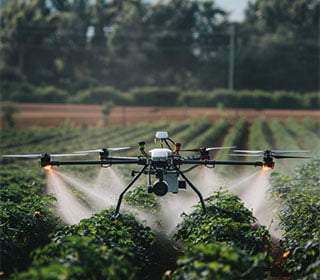
In recent years, the agricultural industry has witnessed a significant transformation with the advent of agricultural spray drones. These unmanned aerial vehicles (UAVs) equipped with spraying systems have revolutionized precision farming practices, offering farmers unprecedented control and efficiency in crop management. In this comprehensive guide, we will explore the innovations, benefits, and applications of agricultural spray drones, highlighting their role in shaping the future of precision agriculture.
The Evolution of Agricultural Spray Drones
The development of agricultural spray drones represents a milestone in the evolution of precision farming technology. This section traces the history and evolution of these drones, from their inception to the cutting-edge models available today.The first agricultural spray drones were introduced in the early 2010s, primarily as experimental prototypes designed to explore the potential of unmanned aerial vehicles in farming practices. These early models were rudimentary, with limited payload capacities and basic navigation systems. However, as interest in precision agriculture grew, so did the capabilities of these drones.
Precision Farming with Agricultural Spray Drones
Agricultural spray drones have become indispensable tools in precision farming, enabling farmers to precisely apply fertilizers, pesticides, and herbicides to crops. This section delves into the various aspects of precision farming facilitated by agricultural spray drones, including targeted spraying, mapping capabilities, and real-time monitoring.
Applications of Agricultural Spraying Drones
Agricultural spray drones find diverse applications in modern farming practices, including:
Crop Protection: Drones can effectively apply pesticides, herbicides, and fungicides to control pests, diseases, and weeds, protecting crop yields and quality.
Nutrient Management: Drones can precisely apply fertilizers and other nutrients to optimize crop growth and minimize environmental impact.
Seedling and Seeding: Drones can distribute seeds and seedlings over large areas, promoting uniform crop establishment.
Irrigation Monitoring: Drones can assess irrigation needs and identify water stress areas, optimizing water use efficiency.
Crop Health Monitoring: Drones equipped with multispectral or hyperspectral sensors can monitor crop health, identifying nutrient deficiencies, diseases, and pest infestations early on.
Table of Key Benefits of Agricultural Spraying Drones
| Benefit | Description |
|---|---|
| Precision Application | Minimizes waste and maximizes efficiency of chemical application. |
| Accessibility | Reaches hard-to-reach areas, reducing environmental impact and improving safety. |
| Time Savings | Covers large areas quickly, significantly reducing spraying time. |
| Labor Reduction | Minimizes manual labor and exposure to hazardous chemicals. |
| Data Collection | Gathers valuable data on crop health, soil conditions, and pest infestations. |
Future Outlook for Agricultural Spray Drones
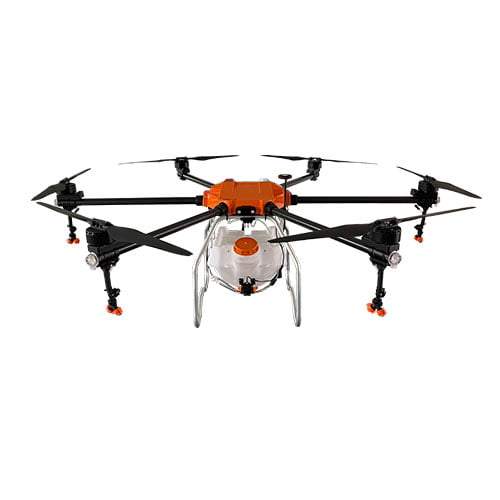
The future of agricultural spray drones is bright, with continuous advancements in technology and increasing adoption by farmers worldwide. Key trends shaping the future of this technology include:
- Autonomous Operation: Drones are becoming increasingly autonomous, capable of performing tasks without constant human intervention.
- Integrated Systems: Drones are being integrated with precision agriculture technologies, such as GPS guidance and variable rate application systems, for even more efficient and precise spraying.
- Regulatory Developments: Governments are working on harmonizing regulations for drone use in agriculture, facilitating broader adoption.
- Data Analytics: Advanced data analytics tools are being developed to extract insights from drone-collected data, enabling more informed decision-making.
Conclusion
Agricultural spray drones represent a groundbreaking innovation in precision farming, offering farmers unprecedented capabilities in crop management and optimization. By leveraging advanced technology and aerial capabilities, these drones have the potential to revolutionize agricultural practices, increase efficiency, and contribute to sustainable food production. As the agricultural industry continues to embrace technological advancements, agricultural spray drones are poised to play a central role in shaping the future of farming worldwide.
FAQ
What is precision farming, and how do agricultural spray drones contribute to it?
Precision farming involves using technology to optimize crop production while minimizing inputs such as water, fertilizer, and pesticides. Agricultural spray drones contribute to precision farming by enabling targeted and precise application of inputs, thereby maximizing efficiency and minimizing waste.
Are there any regulatory requirements or restrictions for operating agricultural spray drones?
Yes, the operation of agricultural spray drones is subject to regulations and restrictions imposed by aviation authorities in different countries. Pilots may need to obtain certifications or licenses, and there may be restrictions on flight altitude, proximity to airports, and spraying practices.
What factors should farmers consider when selecting an agricultural spray drone?
Farmers should consider several factors when selecting an agricultural spray drone, including payload capacity, spray width, flight time, cost, and compatibility with existing farm management systems. Additionally, factors such as durability, reliability, and after-sales support are also important considerations.
How do agricultural spray drones improve crop management efficiency?
Agricultural spray drones enhance crop management efficiency through precise and targeted application of fertilizers, pesticides, and herbicides. By autonomously navigating fields and delivering inputs directly to crops, these drones minimize wastage, reduce labor costs, and optimize resource utilization, ultimately leading to improved crop yields and profitability for farmers.
Can agricultural spray drones be used in organic farming practices?
Yes, agricultural spray drones can be used in organic farming practices with proper selection of organic-certified inputs for spraying. While the emphasis in organic farming is on minimizing synthetic chemical use, drones equipped with organic-approved inputs can still provide precise and targeted application, helping organic farmers manage pests, weeds, and nutrients more effectively while adhering to organic certification standards.

